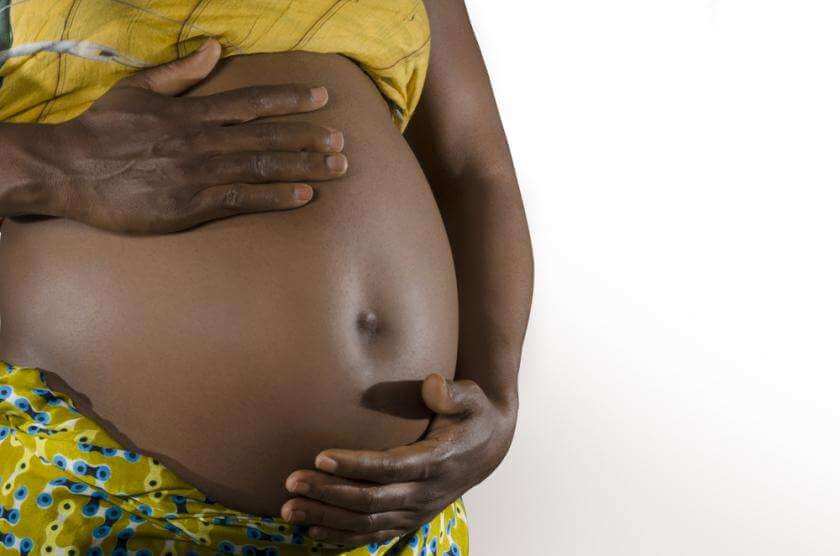There is growing concern among analysts, stakeholders, including mothers over the undermining effects of President Donald Trump’s policy, commonly referred to as the Global Gag Rule (GGR) on Nigeria’s reproductive and overall health goals.
Investigations have shown that the alarming impacts of Trump’s GGR on Nigerian women’s sexual and reproductive health range from commodity insecurity to loss of key U.S. health partners, even financial and administrative burden of compliance.
Advertisement
Further disturbing effects of the policy termed, ‘Protecting Life in Global Health Assistance,’ are noticeable in diminished health assistance, chilling effects on advocacy with increasingly hostile domestic environment for sexual and reproductive health and rights.
This is worsened by the fact that Nigeria, which is the single largest recipient of U.S. international development aid, relies heavily on global health assistance to meet the needs of its large and growing population.
GGR is an executive order by the US government that blocks U.S. federal funding for non-governmental organisations that provide abortion counselling or referrals, advocate to decriminalise abortion or expand abortion services.
Reacting to the development, some expectant mothers who were at the Okeira Primary Health Centre 2 for immunisation decried the far-reaching adverse impact of GGR on free access to family planning commodities in the face of fund cut.
Advertisement
Mrs. Anne Ugboaja, 37, a seamstress with two children, revealed that she is currently on a family planning method that would last for three years and was administered free at the health centre.
She lamented; “But if these FP commodities can no longer be accessible by women, there is a huge problem,” adding, “it will give rise to unintended pregnancies, unsafe abortions, maternal mortality.
“With the economy, most of us hardly meet our daily need not to talk of buying family planning commodities to prevent pregnancy.”
She prayed the government to look for alternative funding to cater for these services since GGR policy will have a negative effect mostly women.
Also, Mrs. Agnes Afolabi, a trader and mother of three, said that she was able to space her children because of the family planning method she is using.
Advertisement
Commenting on the Mexico City Policy, Afolabi said; “If the policy by President Trump which is the expanded GGR is going to affect family planning services, then the Nigerian women are in trouble.
She queried; “How do we prevent unintended pregnancies which will lead to abortion and then possible death or serious complications? What is the fate of the average or rural Nigerian woman when the commodities are eventually made available but not affordable?
Afolabi however advised the Nigerian government to step up its game and prevent these impending danger that is about to befall on the country.
She said, “for a Nation like ours where abortion is illegal, a lot of women who doesn’t want a pregnancy will seek clandestine ways to terminate it.”
The trader reasoned that the trend which will result in quacks patronage will in turn increase maternal mortality thereby putting Nigeria as an unsafe place to live and child bearing.
There are deep concerns among experts that GGR would worsen the maternal morbidity and mortality indices in all the developing countries of the world.
Advertisement
This is because abortion is legal only when performed to save a woman’s life in Nigeria. Still, abortions are common, and most are unsafe because they are done clandestinely, by unskilled providers.
Commenting, chairman, Association for the Advancement of Family Planning (AAFP), Dr Ejike Oji, said; “The GGR which has reproductive rights advocates reeling is significantly broader than similar bans in place intermittently since 1984. Those past actions were limited to about $600 million in family planning funding.”
Dr Oji made the point at meeting for the Network of Reproductive Health Journalists of Nigeria (NRHJN) in Ibadan, Oyo state with the theme: “Historical Antecedents of the GGR and Its Impact on Sexual Reproductive Health and Right, Civil Society Organisation Focal Point for FP 2020.
On the GGR impact, he says, “At a small health center in Lagos, Nigeria, a nurse advises women on how to have a healthy pregnancy. The center is supported by the U.N. Population Fund. This centre will be defunded.”
In the same vein, Hauwa Shekarau, Country Director, Ipas Nigeria, in her paper, titled; “Barriers to Safe Abortion Services in Nigeria”, says both the Criminal Code and Penal Code on abortion are restrictive and outdated.
“The law is obsolete and is not meeting the yearnings of the people. The law was inelegantly drafted,” Shekarau said.
Legally restricting reproductive health services such as abortion does not affect the number of abortions that happen,” Shekarau explained.
“Legal restrictions on abortion make abortion unsafe, especially for poor women. Where abortion is legal and safe services are available, deaths and disabilities from abortion are greatly reduced.”
The Ipas Nigeria Country Director cited Dr. H. Nakajima, Director-General, WHO, 1999, while condemning the country’s restrictive abortion law saying; “Hundreds of pregnant women, alive at sunset last night never saw the sunrise this morning.
“Some of them died in labour, some died of hemorrhage in a hospital lacking blood, some died in the painful convulsions of eclampsia and some died on the table of an unskilled abortionist trying to terminate an unwanted pregnancy.”
Also, the Guttmacher Institute 2015 fact sheet shows that unsafe abortion is a major contributor to Nigeria’s high levels of maternal death, ill health and disability.
Giving a broader view the vice-president of Marie Stopes International, Marjorie Newman-Williams said in a statement, “Evidence shows that by blocking funding to the world’s largest NGO providers of modern contraception, unintended pregnancies and abortions go up. As a result, women and girls are less likely to complete their education, have a career, or pursue their dreams for the future.”



